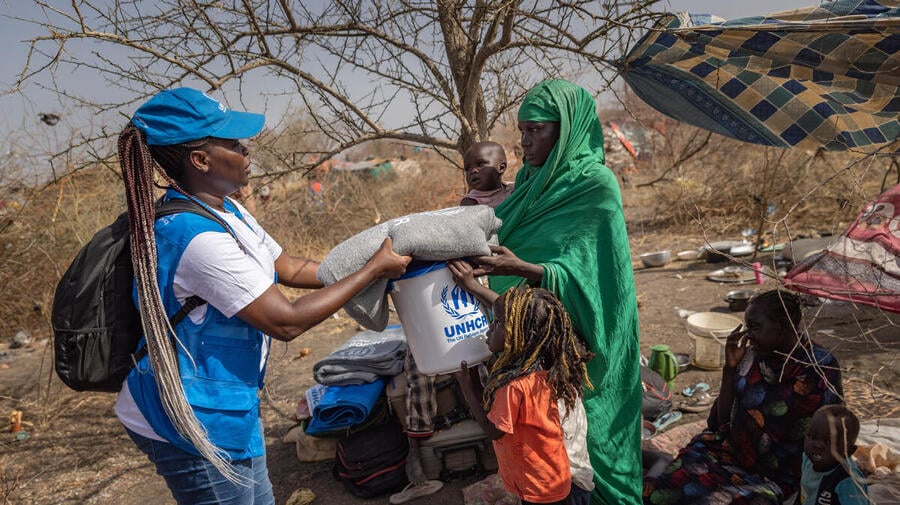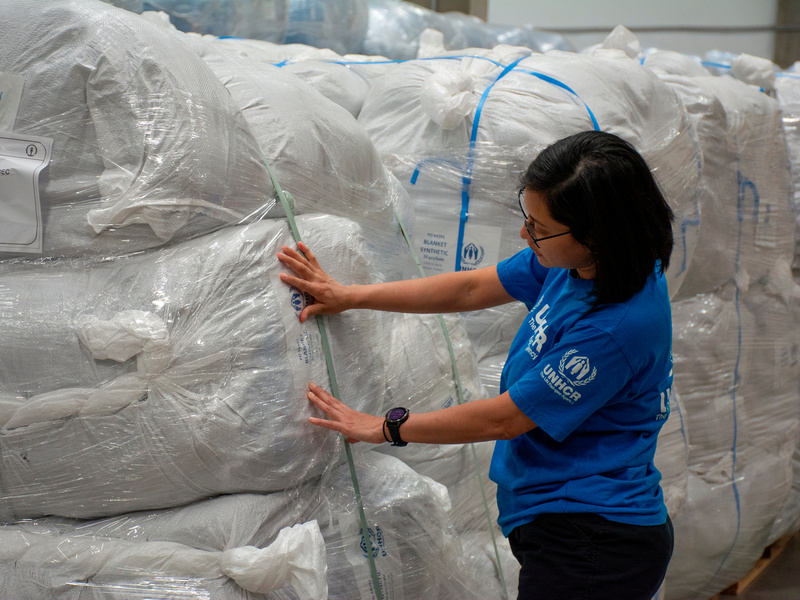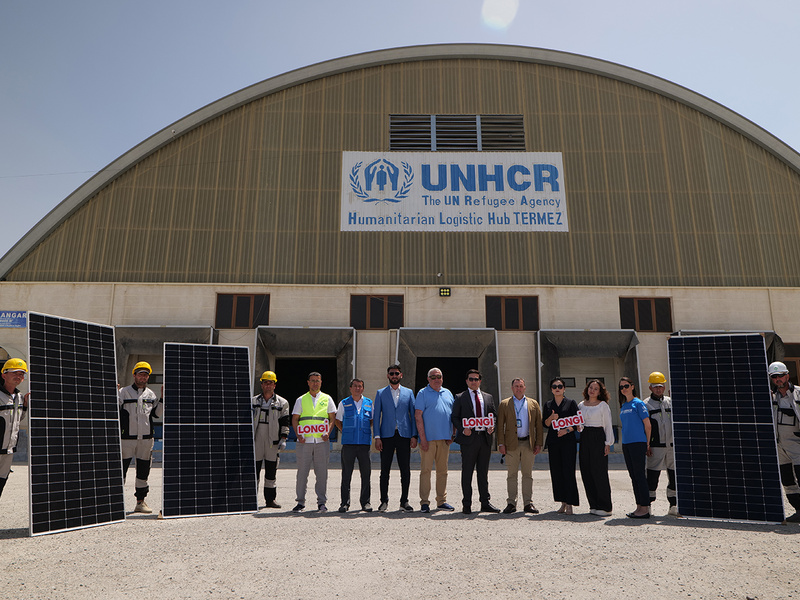Sustainable supply initiatives
Sustainable supply initiatives

A UNHCR staff member hands over core relief items, including blankets, mats and a bucket, to Achan, a mother-of-six, at her shelter in the bush in South Sudan.
Core relief items, such as tents, blankets and sleeping mats, are key components of our humanitarian assistance. While they are vital and life-sustaining products, an expert evaluation found that their production and distribution contribute to almost 60 per cent of UNHCR’s total carbon emissions.
In response UNHCR is undertaking major initiatives to improve the sustainability of our end-to-end supply chain, including in the planning, sourcing, contents, manufacturing processes, procurement, delivery and lifecycle management of essential relief items and other goods.
By prioritizing local procurement and considering diversity, gender balance and ethical practices, UNHCR is also supporting local economies and social inclusion.
Our results
By the end of 2025 UNHCR aims to:
Product specifications for more sustainable UNHCR core relief items
UNHCR continuously reviews and updates the specifications of the highest-emitting core relief items to ensure the most sustainable and up-to-date versions are available to the humanitarian community. To date, nine specifications have been revised to reduce the use of virgin plastic and increase the proportion of recycled material by up to 100 per cent.
Disclaimer for suppliers: For formal solicitations, please refer to the technical specifications provided in the relevant tenders.
Product specification documents
Mosquito net
WHO-approved environmentally friendly product specifications: Mosquito net, polyester, recycled.
Packaging requirements and instructions
Contact us
📧 For more information, please contact us at [email protected].



